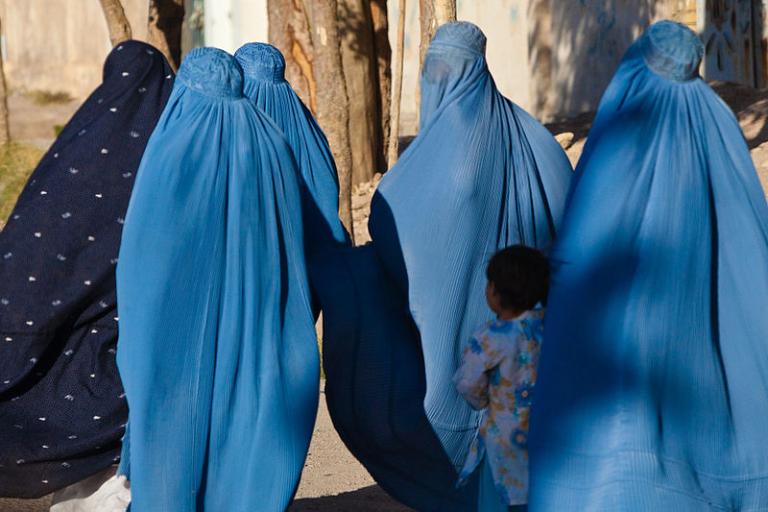
So we’re leaving Afghanistan, with a partial, then ultimately a complete withdrawal.
The Taliban has promised to behave themselves (that is, not to support Al-Qaida), or maybe they haven’t, really (is the extent of the promise really just to not provide aid for any planned attacks on the US?). I could read, and attempt to parse the so-called “peace agreement,” but I doubt it really matters. Its purpose is not to ensure that the Taliban enter into the Afghan government in a democratic fashion and hew to the norms of a modern democratic state. Its purpose, to the contrary, is to allow the US army to save face as it leaves the country.
Am I a fan of this turn of events?
Until not that long ago, I would have said that we simply cannot leave, because the fate of women and girls if the Taliban retake power is simply too grim. How can we simply leave them to a fate of being trapped in their homes or under burqas, dying in childbirth because they aren’t permitted to seek medical care, and the like? It’s appalling.
But when you do the math — when you realize that the young men serving in the military were not necessarily even born when the precipitating event of September 11 occurred — well, at some point one must finally recognize that the nation-building that had always been a part of this endeavor simply isn’t possible. Why that is, I don’t know — that is, whether there are cultural differences that mean that the Afghanis simply aren’t interested in the objective we have in mind for them, that the men (not just Taliban men) think the Taliban proscriptions are entirely appropriate, that they were willing to fight against the Soviet occupiers but not against their own people, that too many of them who might have fought left to claim refugee status in Europe, that those who would have liked to have a western-style democracy and economy simply weren’t capable enough, etc.
And maybe we — that is, the U.S. military and the various international development organizations, both the NGOs, and the arms of the US government such as USAID — might have been more competent at achieving this goal. Certainly, there were plenty of reports of corruption by the Afghans and of the Americans just standing by and accepting it. But after 18 years, under Bush, Obama, and now Trump, it’s no longer reasonable to say, “well, it’s the fault of X, and if Y had been in charge, it would have all gone differently.” After all, both X and Y were in charge. Bush had his “surge,” to some degree of success? Did Obama squander it? In the end, it doesn’t matter any longer; it’s just too late now.
And it’s sad, really. I don’t harbor any expectation that this will end well. I fully expect that we will at some point be helicoptering people out in a replay of 1975 Vietnam.
And I wonder: did supporters of the agreement that led to US withdrawal from Vietnam, believe that it would produce lasting peace? Did they believe that North Vietnam would leave South Vietnam undisturbed? I know some number of war protesters believed that North Vietnam was in the right so would have been fine with an agreement that meant little more than a structure under which the U.S. would leave.
In the end, it’s one of a series of lessons. After all, I was a college student when the Berlin Wall fell, and in my understanding of the world, that was a clear divide between the Cold War era and fears of nuclear war, and a brighter future. True, the Tiananmen Square protest did not have the same outcome as those of the Soviet satellites, but I admit I bought into the idea that as China became more prosperous, it would eventually become more free. We have this sense that we are somehow hardwired for democracy. Is that really true?
Consider the scene in the first Avengers movie, when Loki says, “It is the unspoken truth of humanity that you crave subjugation.” (Yes, I’ve seen it multiple times — I have three boys, after all — but pulled the line from a quotes website.) We’re not meant to believe that this is actually true — but there is a certain truth to it, at least insofar as the narrative of fighting for freedom doesn’t always play out as we imagine.
So anyway, that’s all I have to say on the subject.
How about you?
Image: https://commons.wikimedia.org/wiki/File%3AWomen_in_burqa_with_their_children_in_Herat%2C_Afghanistan.jpg; By Arnesen (Woman and Children) [CC BY-SA 2.0 (http://creativecommons.org/licenses/by-sa/2.0)], via Wikimedia Commons












